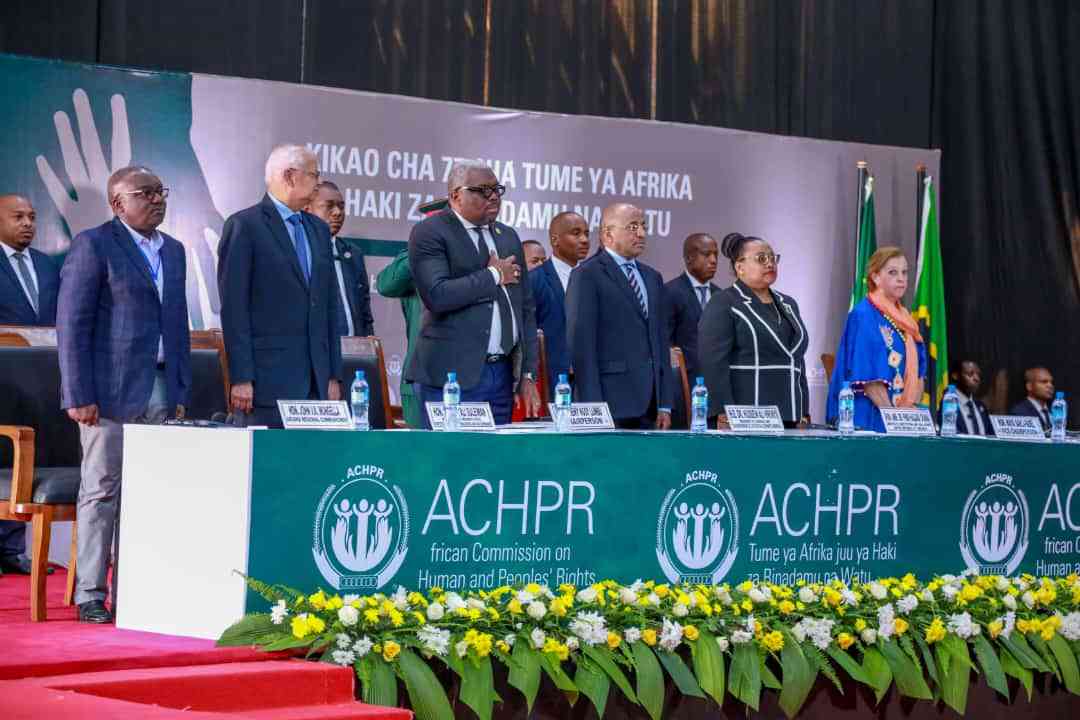
The African Commission for Human and People’s Rights is considering dispatching a team to Zimbabwe on a fact-finding mission on the Patriotic Law and the human rights situation in the country.
The proposal was made on Monday after civic groups attending the 77th Session of the ACHPR currently underway in Arusha, Tanzania spotlighted Zimbabwe for weaponisation of the law to suppress its people, an allegation immediately denied by the government.
Several civic society organisations, including the Zimbabwe Human Rights NGO Forum and its members attending the continental human rights indaba have accused Zimbabwe of enacting laws aimed at shrinking the democratic space, citing the Private Voluntary Organisation Amendment Bill and the Criminal Law Codification and Reform Law, popularly known as the Patriotic Law.
Recently appointed Justice, Legal and Parliamentary Affairs secretary, Vimbai Nyemba, responding on behalf of the government, labelled the concerns raised by civic society organisations as “serious and unfounded allegations”.
Nyemba said Zimbabwe welcomed the prospect of a fact-finding mission to be undertaken concerning the human rights issues raised.
The vice chairperson of the ACHPR, Janet Sallah-Njie immediately put Zimbabwe to task over Nyemba’s remarks, ordering the Zimbabwean government to prepare the terms of reference for the fact-finding mission.
Sallah-Njie tasked the Zimbabwe government to write and notify the Commission of the full terms of reference of what the fact-finding mission should entail.
Nyemba responded by saying that the Zimbabwe delegation has taken note of that and will action accordingly.
- Village Rhapsody: Zanu PF must revisit its ruinous stance on NGOs
- Detained CCC activist falls sick
- Zanu PF youths run amok at court
- Zim urged to abolish death penalty
Keep Reading
She said the sessions of the African Commission are intended “for the discussion of human rights issues in a constructive, empirical and respective manner”.
Nyemba denied that the Patriotic Law criminalises private correspondence between citizens, residents, embassies, foreign offices and human rights organisations inside or outside Zimbabwe.
She vehemently insisted the Act clearly defines conduct which is prohibited, claiming the law is not vague enough to militate against the possibility of abuse.
President Emmerson Mnangagwa’s government has been accused of enacting repressive laws to thwart opposition and dissenting voices.
Zimbabwe recorded an increase of cases of human rights violation cases before and after the 23 August polls. The deteriorating human rights situation was flagged by international election observers during the just-ended polls.











